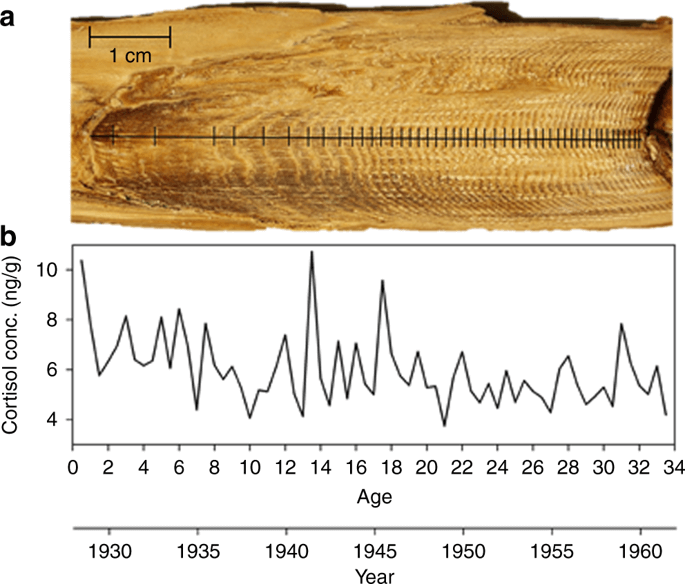Unlike humans, who can clean out the wax that covers their external ear canal (not with Q-tips of course!), whales remain stuck with their wax. This earwax accumulates and forms huge plugs resembling a cross between a goat horn and a scraggy candle. Thanks to their oily texture, these wax plugs are genuine archives that hold many secrets.
These are the secrets that are of interest to researchers! By peeling away the layers of a whale’s earwax, researchers can get a glimpse into its life. A team of American researchers led by Stephen Trumble has also managed to measure the stress of large rorquals over more than a century and a half by studying about twenty earwax plugs.
Layers of cerumen
The particularity of whale earwax is that it is deposited by succession: every six months, a layer of earwax covers the previous one. For researchers, these superimposed lamellae can be read like tree rings. Not only can they be used to determine the age of the whale, but also its health and the quality of the external environment at any time in the course of its life.
Stephen Trumble’s team analyzed each layer of wax with a particular focus on stress. “Stress is the body’s reaction when faced with a threat, be it a physical aggression or a psychological perception. In all animals, the body goes into action either to fight or to flee and, to achieve this, it produces hormones, including adrenaline and cortisol,” explains Jonathan Bluteau, an expert in human stress and professor at the Department of Education and Specialized Training at the Université du Québec à Montréal.
The level of cortisol in the body, or rather trapped in earwax, is a good indicator of stress levels in large rorquals. With this information, researchers can determine the effects of stressors that affect whales, whether it be the presence of a predator or sudden changes in the environment such as ship noise.
Disturbing humans
What the earwax plugs reveal is that there is a strong connection between human activities and stress in large rorquals. In fact, when the intensity of whaling activities was high, so were the cortisol levels. Although this association is not surprising, it is much stronger than suspected! In the 1970s, an international moratorium on whaling was instituted and almost at the same time, the cortisol levels in large rorquals decreased.
Despite the moratorium, whales are not out of the woods just yet! Although their stress levels have dropped considerably, a worrying trend is taking shape: cortisol levels have been steadily increasing over the past forty years. This increase is correlated with the warming of our oceans’ waters. Magnified by human activities, climate change seems to be indirectly affecting whales more than previously believed.
While the existence of whale earwax has been known for some time, “this is the first-ever study to quantify temporal stress patterns in baleen whales,” notes Stephen Trumble. And, many earwax plugs are yet to be analyzed to see what other secrets the wax will unveil.





